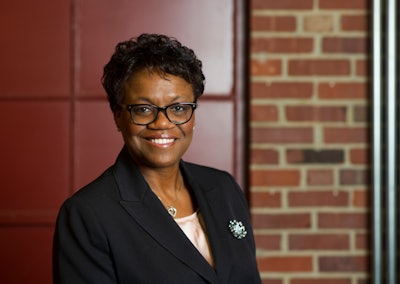For the last 33 years, I have enjoyed a successful pathway to becoming a CEO for a community college. My path is fairly traditional: faculty, program leader, dean, associate vice chancellor, vice chancellor and chancellor. As a Black woman who began her career in Orange County in Southern California, where the Black campus student population was 3% and  Dr. Kimberly Beatty
Dr. Kimberly Beatty
The Imperative
More than ever, community college boards have seen a mass exodus from the president and chancellor seats. There is a real opportunity to build a cadre of Black leaders to lead our country’s community colleges. America also finds itself in a time where racial tensions have escalated on the streets and it pours over onto many of the college campuses. These tensions create a racial climate that can set up young Black professionals for failure or leave them feeling as if “the game is rigged." There is also the circumstance of burn-out. The Black leaders are stretched so far and in between, Black CEOs feel compelled to accept any and all invitations for service work to ensure that a diverse perspective is represented.
The Myths
The myths designed to support a lack of Black leaders abound:
• “Black applicants don’t apply”: I would say this is true and false. There are many community college districts that don’t have a reputation for hiring diverse populations, whether intentional or not. As a result, Blacks may not apply. I remember when I was a faculty member at a college in Southern California; I was often asked to attend the statewide recruitment fair to support the effort and attract Black applicants. It worked! The false side of this myth is that Black applicants do apply, only to be (un)intentionally screened out given the existing hiring procedures and committee structures.
• “There aren’t any Black qualified candidates out there”: This is absolutely false and closely tied to the first myth. At my own institution, I have learned of VERY qualified Black candidates for campus president who were not even selected for an interview!
A Success Story to Spotlight
As previously referenced, the Presidents’ Round Table (PRT) is a professional organization comprised of Black CEOs of community colleges. One of the PRT’s priorities is professional development. Through this commitment the Thomas Lakin Institute was established. The Thomas Lakin Institute is a comprehensive leadership development program grounded in the AACC leadership competencies. This week-long interactive experience is taught from the Black perspective. The presenters facilitate discussions that provide insight into real experiences and challenges of the CEO role.
Throughout the Institute’s intensive five-day experience, the faculty leverage their community college leadership expertise and field-based practical skills to address topics such as the role of a community college president, preparing for the presidency, student success and completion, crisis management, planning and leading strategic initiatives, budgeting, generational effect on the college presidency, working collaboratively with faculty and bargaining units, and governance.
According to Dr. Charlene Dukes, past convener for the PRT, “The Thomas Lakin Institute provides a uniquely personal and professional development experience for proven Fellows who demonstrate the potential for a community college chief executive officer position.”
We now have approximately 140 Black community college presidents and chancellors; more than 25% of these leaders participated in the Thomas Lakin Institute.
A Call to Action
While there has been progress, there is still a lot of work to do. Boards have a responsibility to lead by example by diversifying their boards, conducting institutional assessments to ensure readiness for the culture to embrace a Black president, and constantly reviewing hiring policies to ensure there are no unintentional barriers that feed the myths highlighted herein. Current and retired Black CEOs must pay it forward by mentoring midlevel leaders who aspire to become a president. Lastly, organizations such as the PRT have to continue to provide professional development for sitting presidents to ensure we sustain them and not set them up for failure.
I believe in our country and our higher education system—it is through this commitment that I continue to serve those who are underserved; I hope many others will join me in this quest.
- Dr. Kimberly Beatty serves as chancellor of Metropolitan Community College (Kansas City, Mo.) and convener, Presidents’ Round Table.
The Roueche Center Forum is co-edited by Drs. John E. Roueche and Margaretta B. Mathis of the John E. Roueche Center for Community College Leadership, Department of Educational Leadership, College of Education, Kansas State University.
This article originally appeared in the February 3, 2022 edition of Diverse. Read it here.



















